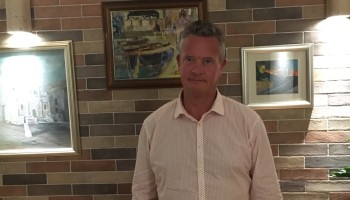The research, conducted in focus groups and surveys of over 1,000 individuals in five Tajik cities, found that just under 50 percent of the population admitted to giving or receiving bribes.
Sukhrob Sharipov, the Director of the Presidential Centre for Strategic Research, said this was positive.
“The research showed that more than 50 percent of citizens in Tajikistan did not give bribes during the last year,” Sharipov said.
“This, together with the fact that more than one-third of respondents were ready to participate in anti-corruption activities, allows us to be optimistic about the possibilities of anti-corruption efforts in Tajikistan."
Ambassador Ivar Vikki, Head of the OSCE Mission to Tajikistan, which supported the study, also said the report was valuable because it “identifies significant parts of society that are not involved in corruption. It shows the challenges ahead but also points to significant potential support for an efficient anti-corruption policy.”
“It is important not to underestimate the problem, but also not to overestimate it and get discouraged,” he said.
The report concluded that the Tajik government and the NGO sector need to dedicate more resources to fighting corruption, and to better engage the media to raise awareness of the issue.
Tajikistan ranks 152 out of 182 on Transparency International’s 2011 Corruption Perceptions Index, one of the most widely acknowledged corruption barometers, with 2.3 out of a possible 10 points.





